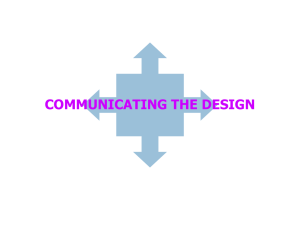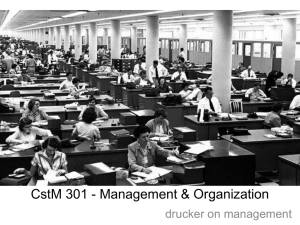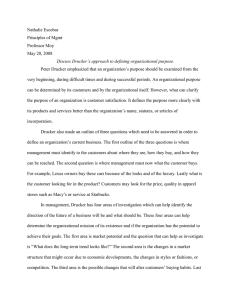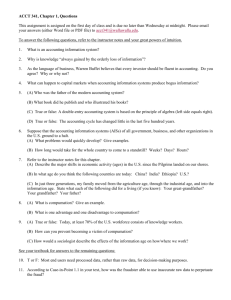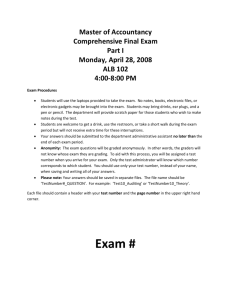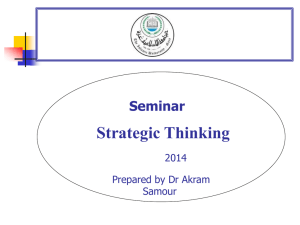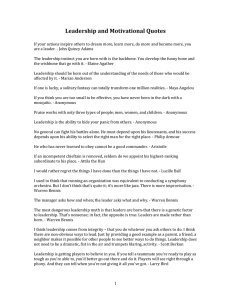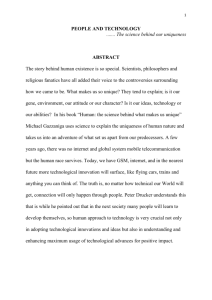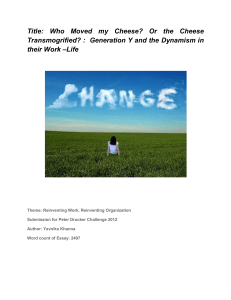The Great Transformation - Managing Our Way to Prosperity
advertisement
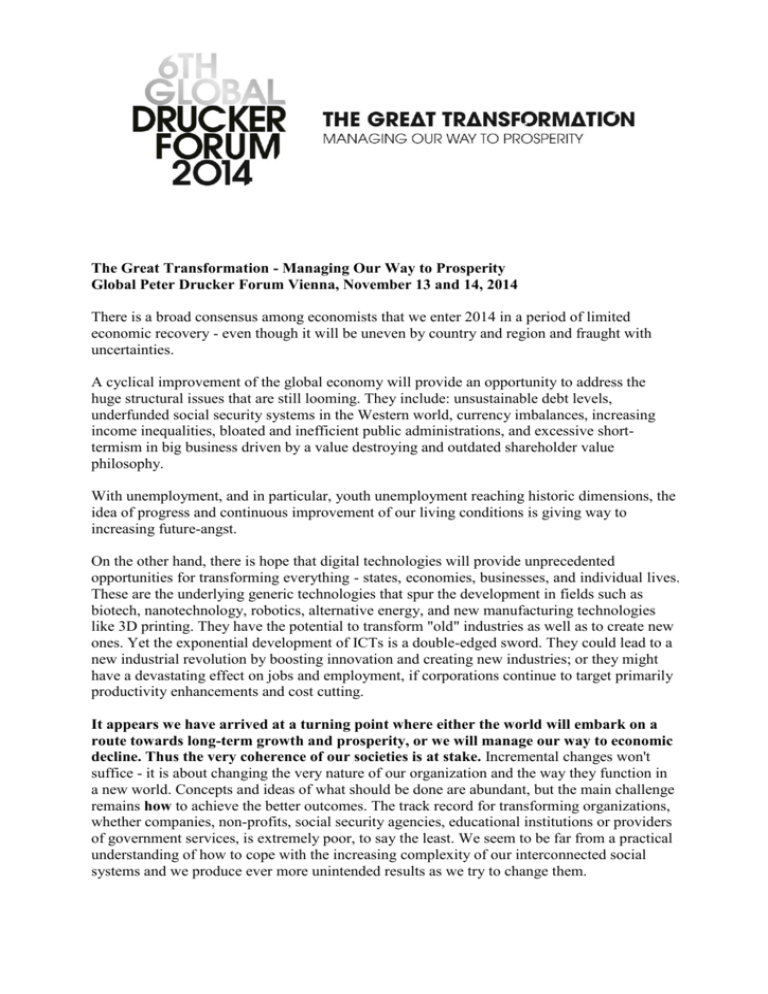
The Great Transformation - Managing Our Way to Prosperity Global Peter Drucker Forum Vienna, November 13 and 14, 2014 There is a broad consensus among economists that we enter 2014 in a period of limited economic recovery - even though it will be uneven by country and region and fraught with uncertainties. A cyclical improvement of the global economy will provide an opportunity to address the huge structural issues that are still looming. They include: unsustainable debt levels, underfunded social security systems in the Western world, currency imbalances, increasing income inequalities, bloated and inefficient public administrations, and excessive shorttermism in big business driven by a value destroying and outdated shareholder value philosophy. With unemployment, and in particular, youth unemployment reaching historic dimensions, the idea of progress and continuous improvement of our living conditions is giving way to increasing future-angst. On the other hand, there is hope that digital technologies will provide unprecedented opportunities for transforming everything - states, economies, businesses, and individual lives. These are the underlying generic technologies that spur the development in fields such as biotech, nanotechnology, robotics, alternative energy, and new manufacturing technologies like 3D printing. They have the potential to transform "old" industries as well as to create new ones. Yet the exponential development of ICTs is a double-edged sword. They could lead to a new industrial revolution by boosting innovation and creating new industries; or they might have a devastating effect on jobs and employment, if corporations continue to target primarily productivity enhancements and cost cutting. It appears we have arrived at a turning point where either the world will embark on a route towards long-term growth and prosperity, or we will manage our way to economic decline. Thus the very coherence of our societies is at stake. Incremental changes won't suffice - it is about changing the very nature of our organization and the way they function in a new world. Concepts and ideas of what should be done are abundant, but the main challenge remains how to achieve the better outcomes. The track record for transforming organizations, whether companies, non-profits, social security agencies, educational institutions or providers of government services, is extremely poor, to say the least. We seem to be far from a practical understanding of how to cope with the increasing complexity of our interconnected social systems and we produce ever more unintended results as we try to change them. Peter Drucker viewed Management (a term that for him included business administration, leadership, and entrepreneurship) as a fundamental and vital social function. He posited that the prosperity, vitality, and even survival of a society depended on the quality, earnestness, knowledge, and values of its managers and leaders. He hailed professional management as "the specific work of a modern society, the work that distinguishes our society from all earlier ones." Are managers, leaders, and entrepreneurs up to the task of tackling the great transformation that we face? Most would argue that they are not. Hence, what can we do about this? What does it take to reshape Management as an effective social technology (as Drucker called it) for transforming our institutions and organizations? This will be the core focus of the Drucker Forum 2014. Under the lens of the big transformation, specific subjects will be discussed in depth such as: Does the practice of Management need fundamental change? What should it be? What is the common layer of management on which specializations such as Finance, Marketing, Supply Chain Management, and Human Resource Management should be based? How can Economics and Management be repositioned as complementary disciplines to create the conditions for change - at a macro level tightly coupled to the micro level where managers and knowledge workers create the future? What are the management skills and leadership competencies required to achieve continuous innovation and transformation within organizations? What is the value system that underlies managerial action? How to establish a new balance between economic and human values? What is the future of work? How can companies contribute to create job opportunities for the generations to come? Can we finally set free the human potential embedded in organizations? What are new organization forms that may be more adequate for an environment of unremitting change? How can digital technology be leveraged more effectively as an engine for innovation and future growth? How can public and private sectors collaborate to develop new management approaches for addressing transformational issues at their interface? How can policymakers in conjunction with key economic stakeholders such as investors, boards and top managers/executives, economists, and management experts create a new framework that overcomes short-termism and puts human capabilities, human capital and community back in the front line of long-term company valuation? What is the contribution of educational institutions (from schools to universities) to create a new understanding of the vital role of Management and Leadership for business and non-business institutions and organizations (government, education, social security, civil society and non-profits)? What can we learn from agile small and mid-sized companies in terms of changemanagement and adaptability? With a mix of high-profile practitioners and thought leaders in their respective fields the Drucker Forum will provide impulses to the emerging global dialogue on mastering these challenges. It will show the big picture and also dive into exemplary practices that point at a new direction. Participants will gain new perspectives and insights into concrete examples that they might include in their strategies and their own practices as they prepare for the future. Richard Straub President Peter Drucker Society Europe http://www.druckerforum.org/ Twitter @GDruckerForum @rstraub46
